Ron Howard/Redferns/Getty Images
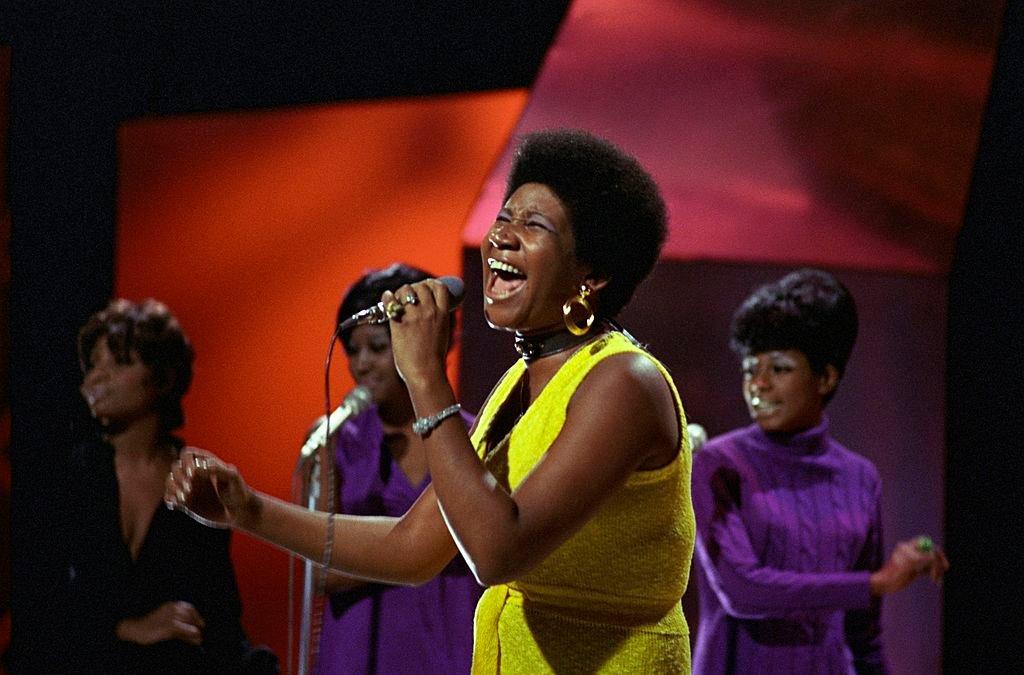
Aretha Franklin in 1970
news
From Aretha Franklin To Public Enemy, Here's How Artists Have Amplified Social Justice Movements Through Music
We also examine powerful protest songs from Mahalia Jackson, Harry Belafonte, Pete Seeger, Bob Dylan, James Brown and N.W.A
The year 2020, as difficult (and deadly) as its been for so many, has become a moment of reckoning. The nation is facing the shutdown and health crisis of coronavirus, pervasive acts of racist violence against unarmed Black people, and countless injustices for people of color, LGBTQI individuals and women and those within the intersectionality of these identifies. Today, in this climate of social unrest, powerful protest music of the past resonates once again.
As we stand in this pivotal moment, let's look back on some of the songs and moments that defined the civil rights movement and beyond, as Black artists and allies reflected the dire need for justice and inclusive representation, and protestors took their music to new heights.
Mahalia Jackson
Known as the Queen of Gospel, Mahalia Jackson is credited as one of the first artists to take gospel music out of the church. She used her powerful voice to record a massive catalog of religious music during her career, choosing to never dip her toes in secular music. Jackson befriended Martin Luther King Jr. at the 1956 National Baptist Convention and later performed before many of his speeches, in Selma, Montgomery and, most famously, immediately before his famous "I Have A Dream" speech at the March on Washington for Jobs and Freedom in 1963, which she directly inspired.
She was the final musical guest during at the March, singing "How I Got Over," a powerful gospel song, popularized by the Famous Ward Sisters, about overcoming racial injustice. Not only did the song have deep resonance with the Black audience members, it was Jackson herself who moved King to improvise the most famous "dream" passage of his speech. According to King's adviser Clarence Jones, Jackson shouted out; "Tell them about the dream, Martin! Tell them about the dream!" King pushed his notes to the side and Jones told the person next to him, "These people out there, they don't know it, but they're about ready to go to church."
Given its power, Jackson sang the song many times during her career, earning a GRAMMY for Best Soul Gospel Performance at the 1977 GRAMMYs for it.
Did You Know That Dr. Martin Luther King, Jr. Won A GRAMMY?
Aretha Franklin
<style>.embed-container { position: relative; padding-bottom: 56.25%; height: 0; overflow: hidden; max-width: 100%; } .embed-container iframe, .embed-container object, .embed-container embed { position: absolute; top: 0; left: 0; width: 100%; height: 100%; }</style><div class='embed-container'><iframe src='https://www.youtube.com/embed/9iayJ8u4Qew' frameborder='0' allowfullscreen></iframe></div>
18-time GRAMMY winner Aretha Franklin was one of the many successful soul and gospel singers inspired by Jackson and the path she paved, even performing at her funeral in 1972. The Queen of Soul got her start in music singing in her minister father's church. It was there where Franklin was introduced to civil rights activism. While many of her most beloved hits were covers, she had a unique power to reimagine a song all her own and resonate with so many. "Respect," originally recorded by Otis Redding in 1965, is one of these, which became her first No. 1 hit when she released it in 1967. A powerful anthem asking the listener for "a little respect," it became a protest song for both the feminist and civil rights movements of the time. As Pacific Standard states, "it captured a cultural moment Franklin had herself been fighting to achieve."
The outlet also notes that "Chain Of Fools," an original song, followed in 1967 as another feminist anthem, but found new meaning among Black U.S. soldiers fighting "a white man's war" in Vietnam. In 1972, Franklin recorded a rousing rendition of Nina Simone's 1969 civil rights anthem "Young, Gifted and Black," giving her album the same name, a powerful symbol of Black pride. That same year, Franklin later released live gospel album, Amazing Grace, including renditions of "How I Got Over" and "Amazing Grace." "Respect," "Chain Of Fools, "Young, Gifted and Black" and "Amazing Grace" all earned Franklin GRAMMY wins, evident of how deeply they resonated with America.
'Black Gold' At 50: How Nina Simone Refracted The Black Experience Through Reinterpreted Songs
Harry Belafonte
At 93, Jamaican-American actor, singer and activist Harry Belafonte has been a powerful force and barrier-breaker in U.S. culture since the '50s. Inspired by the emerging social justice-minded folk music of the turn of the century, he made it his life mission to "sing the song of anti-racism," as he said in 2017, to use his voice to highlight the music of the oppressed. Seeing Woody Guthrie perform lit this fire within the Harlem-born artist, inspiring him to visit the Library of Congress in Washington, D.C. to listen to Alan Lomax's field recordings.
His third album, 1956's Calypso, was led by one of his most beloved songs, "Banana Boat (Day-O)," a call-and-response Jamaican folk song sung by dock workers (he spent part of his childhood living with his grandmother there). His version took the U.S. by storm, hitting No. 5 and inspiring five other artists to cover it, who all earned Top 40 hits in 1957. The album, as its title suggests, was filled with upbeat calypso music, a genre with roots stemming from those enslaved by the 17th century Caribbean slave trade. At a time when Elvis Presley and other White rock artists ruled, Belafonte's Calypso outsold both of his records that year, spending thirty-one weeks on top of the Billboard 200.
Belafonte also became a pivotal member of the civil rights movement, as a close friend of King, performing at many of his events and offering financial support to fund voter-registration drives, Freedom Rides and even the March on Washington. "I was angry when I met [King]. Anger had helped protect me. Martin understood my anger and saw its value. But our cause showed me how to redirect it and to make it productive," Belafonte writes in his 2011 memoir.
Pete Seeger
"For Mr. Seeger, folk music and a sense of community were inseparable, and where he saw a community, he saw the possibility of political action," the New York Times wrote in Pete Seeger's obituary in 2014. "His agenda paralleled the concerns of the American left: He sang for the labor movement in the '40s and '50s, for civil rights marches and anti-Vietnam War rallies in the '60s, and for environmental and antiwar causes in the '70s and beyond."
In the '50s, the folk artist adapted "We Shall Overcome" with several other activist, including Zilphia Horton, who taught an updated version of the gospel spiritual "I'll Overcome" to union organizers. Seeger's version became an important rallying cry of the civil rights movement. Many other activist/artists of the time recorded and sang the powerful song at various events, including Jackson and folk acts Peter, Paul and Mary and Joan Baez, the latter who sang it during the March on Washington.
Seeger always used his music to speak up on the big issues of the time; in 1941 he wrote "Talking Union" with members of The Almanac Singers (both acts recorded it), "an almost literal guide to union-building," as Time put it. During Vietnam and the Cold War, respectively, he released anti-war anthems "Waist Deep in the Big Muddy" (1967) and "Where Have All The Flowers Gone" (1955). The latter has been covered many times over the years by Earth, Wind & Fire, Dolly Parton and more, with folk/pop act Kingston Trio's 1962 version first hitting the mainstream and reaching the Top 40.
Bob Dylan
"How many roads must a man walk down / Before you call him a man?" a 21-year-old Bob Dylan begins on his beloved 1963 song, "Blowin' In The Wind," another anthem of the civil rights movement. It is the opening track of his second album The Freewheelin' Bob Dylan, which also features "The Death of Emmitt Till," "Oxford Town," "Masters of War" and other explicitly political songs examining injustices of the time.
Like Belafonte, he was inspired by Guthrie's political brand of folk, but it was his then-girlfriend, Suze Rotolo (pictured on The Freewheelin' Bob Dylan album cover), who moved him towards activism and playing political rallies. He wrote "The Death of Emmitt Till" in 1962, about the Black teen that was brutally murdered by White men for alleged whistling at a White woman, shortly before singing it at a fundraiser for the Congress of Racial Equality, which Rotolo was involved with.
During the March on Washington the next year, Dylan performed several songs, including "Only a Pawn in Their Game," which he had recently written about the civil rights activist Medgar Evers killed just months earlier. He also performed the heart-breaking song at a voter registration rally for Black farmers in Mississippi later that year. In January 1964 he would release the track on his next album, another socially conscious project, this one earning a GRAMMY nomination, The Times They Are A-Changin'.
Bob Dylan Announces New Double Album 'Rough And Rowdy Ways,' Releases New Single "False Prophet"
James Brown
In August 1968, a year before Simone released "Young, Gifted & Black" and just four months after King was assassinated, the Godfather of Soul James Brown delivered the funky Black pride anthem "Say It Loud – I'm Black And I'm Proud." As UDiscoverMusic notes, "The tone of the civil-rights movement had so far been one of a request for equality. Brown, however, came out defiant and proud: he isn't asking politely for acceptance; he's totally comfortable in his own skin. The song went to No. 10 on the Billboard [Hot 100] chart and set the blueprint for funk. Like later Stevie Wonder classics of the '70s, it was a political song that also burned up the dancefloor; an unapologetic stormer that would influence generations."
In 2018, on 50 years after the song's release, Randall Kennedy, a Black law professor at Harvard, explained the power of the song in that moment, and today: "It was precisely because of widespread colorism that James Brown's anthem 'Say It Loud, I'm Black and I'm Proud' posed a challenge, felt so exhilarating, and resonated so powerfully. It still does. Much has changed over the past half century. But, alas, the need to defend blackness against derision continues."
The iconic song recently saw a massive boost in streaming numbers as part of Spotify's Black Lives Matter playlist.
N.W.A, Ice Cube & Dr. Dre
When N.W.A released "F*** Tha Police" in 1988, their hometown of Compton, in South Los Angeles, was rife with police brutality and racial profiling. One of the hardcore rap group's most controversial songs, it struck a chord with in their community, as well as with other Black people living in over-policed inner-cities around the country and frustrated youth of all colors. Directly denouncing the police's abuse of power, the song was largely condemned by the mainstream, causing the group to receive a cease-and-desist letter from FBI and to be arrested for playing it at a Detroit show in 1989, as shown in the Straight Outta Compton biopic.
"We had lyrics. That's what we used to combat all the forces that were pushing us from all angles: Whether it was money, gang-banging, crack, LAPD. Everything in the world came after this group," Ice Cube said in an interview. "We changed pop culture on all levels. Not just music. We changed it on TV. In movies. On radio. Everything. Everybody could be themselves. Before N.W.A … you had to pretend to be a good guy."
In 1992, Rodney King was brutally beaten by LAPD officers who were later acquitted, sparking the 1992 Los Angeles uprising. This not only highlighted the truth and urgency of N.W.A's lyrics, it further solidified it as a rallying cry against the daily violence and racism Black people across the country faced. That year, Ice Cube released his third solo album Predator, along with its biggest hit, the laidback "It Was A Good Day." As HuffPost notes, "he raps about how to cherish moments like chilling with your homies to enjoying your mom's food to NOT get harassed by the police." Dr. Dre followed with his 1debut solo album The Chronic in 1994, and on "Lil' Ghetto Boy" he and Snoop Dogg rap about the dark challenges faced by a formerly incarcerated Black man on parole, powerfully sampling Donny Hathaway's 1972 classic "Little Ghetto Boy."
"Fight The Power": 7 Facts Behind Public Enemy's Anthem | GRAMMY Hall Of Fame
Public Enemy
New York political hip-hop outfit Public Enemy originally recorded "Fight The Power" at the request of then-emerging filmmaker Spike Lee, for his 1989 film Do The Right Thing. It plays a prominent role in the poignant film that explores racial tensions in Brooklyn's Bedford-Sty neighborhood, as the only song character Radio Raheem plays from the boombox he proudly carries at all times. As HipHopDX writes, the song is "indisputably a call to action, [as] Chuck [D] commanded people to stand up against systematic oppression." "Elvis was a hero to most / But he never meant sh*t to me you see / Straight up racist that sucker was / Simple and plain. / Mother f*** him and John Wayne / 'Cause I'm Black and I'm proud," Chuck D raps with authority, both calling out White heroes and nodding to a Black hero, the Godfather Of Soul.
The powerful track finds inspiration from both Brown and the Isley Brothers, who released a song called "Fight The Power" in 1975, it also takes direct influence from them. According to Genius, it features around 20 samples, including Brown's "Say It Loud" and "Funky President (People It's Bad)," and interpolates The Isley Brothers' song. "I wanted to have sorta the same theme as the original 'Fight the Power' by the Isley Brothers and fill it in with some kind of modernist views of what our surroundings were at that particular time," Chuck D explained. The music video (watch above) begins with news footage from the March on Washington, followed by Public Enemy organizing their own march and rally in Brooklyn.
The song was released on the film soundtrack and on their 1990 album, Fear Of A Black Planet, on which they also called out racism in Hollywood and in the police on "Burn Hollywood Burn" (featuring Cube and Big Daddy Kane) and "911 Is A Joke," respectively. This summer, Public Enemy returned with the fiery "State Of The Union (STFU)," calling out the rampant racism of the current White House administration.
How Black Trans Artists Are Fighting To Achieve Racial Justice & Amplify Queer Voices
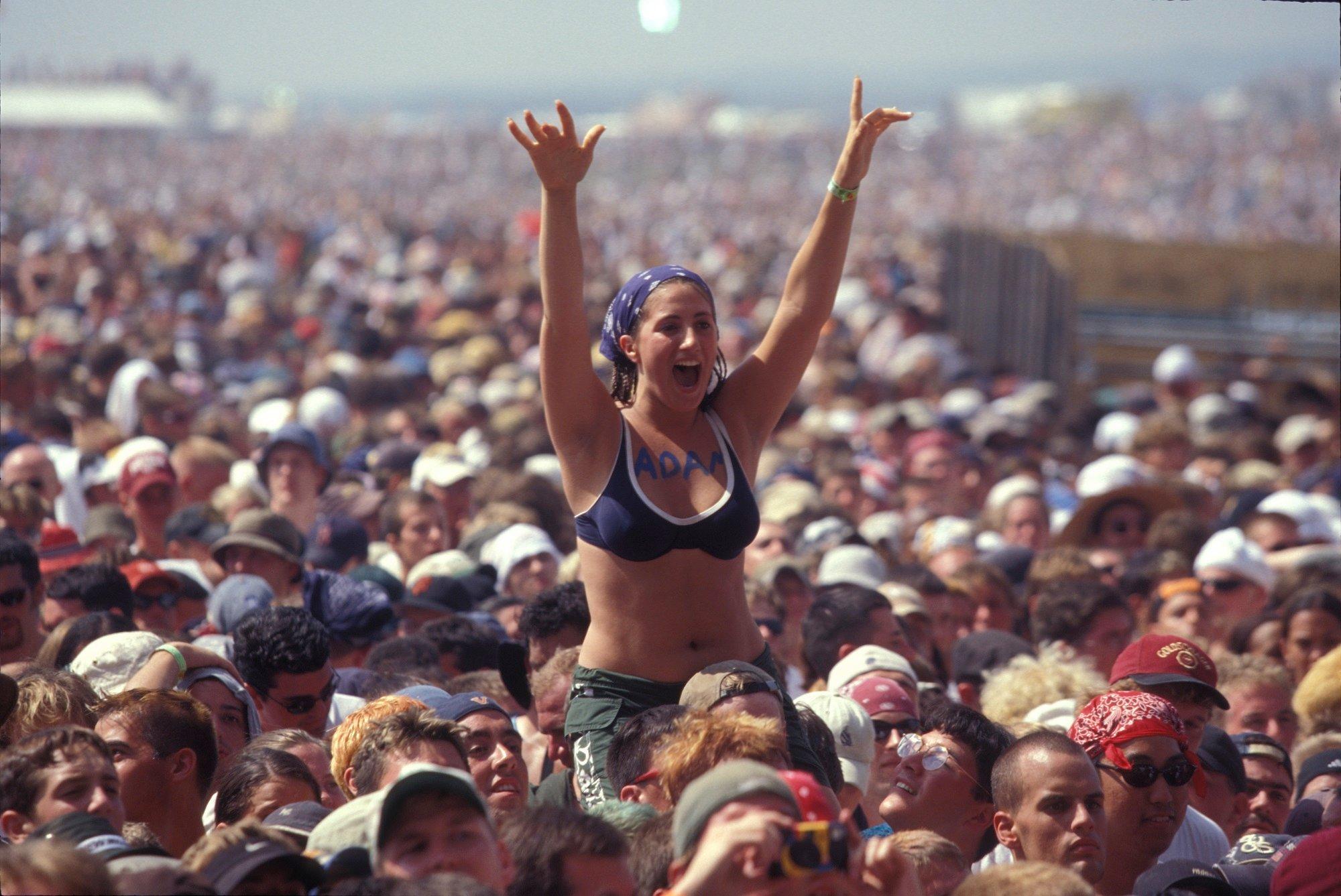
Photo: Getty Images/John Atashian
feature
On This Day In Music: Woodstock '94 Begins In Upstate New York
Held 30 years ago Aug. 12-14, Woodstock '94 featured an eclectic (and muddy) lineup that launched Nine Inch Nails, Green Day and others into the limelight.
Woodstock '94 is no middle child music festival. While not as groundbreaking as Woodstock '69 or as infamous as Woodstock '99, Woodstock '94 boasts a unique legacy that deserves recognition.
Held Aug. 12-14 in the Hudson Valley town of Saugerties, New York, Woodstock '94 was set to commemorate the silver anniversary of the original Woodstock festival in 1969. Nodding to its origins in '69, Woodstock '94 was billed as "2 More Days of Peace and Music" (a third day of the festival was eventually added).
Woodstock '94 featured a wide range of acts that both reflected the nostalgia of Woodstock '69 and highlighted a myriad of new groups. Original Woodstock performers such as Crosby, Stills & Nash (minus Neil Young) and Santana topped the bill, and now-household names including Green Day and Red Hot Chili Peppers performed some of their earliest festival sets.
Even Bob Dylan, who initially declined an appearance at Woodstock '69 despite living near the festival at the time, had a change of heart and agreed to play at Woodstock '94.
It seemed that everyone wanted to capture a sliver of the magic from the original Woodstock. Although roughly 164,000 tickets were sold, the actual number of attendees exceeded 350,000 (surpassing even Coachella 2024's attendance rates).
Spirits were high as the festival opened on Friday with dry, sunny skies highlighting performances from Sheryl Crow, Collective Soul, and others. By the weekend, the weather took a turn and transformed the festival grounds at Winston Farm in Saugerties into a giant muddy puddle. Although Woodstock '69 was also rainy and mud-filled, the madness that ensued at Woodstock '94 led it to be dubbed "Mudstock."
As Primus performed "My Name Is Mud" on Saturday, festival-goers seized the opportunity to fling the wet dirt at the band on stage.
"Once I started singing the words to "My Name Is Mud," all of a sudden huge chunks of sod started flying my way and it was pretty frightening," Primus' lead singer told Billboard 20 years later. "I still have those [speaker] cabinets to this day, and those cabinets still have mud in them."
With high energy from Friday's acts and some mud-induced chaos, attendees were buzzing with anticipation and excitement for the rest of the weekend. The party atmosphere continued throughout day two — and not solely because Blind Melon lead vocalist Shannon Hoon strolled on stage tripping on acid, wearing his girlfriend's dress.
Aerosmith may have been day two headliners, but Nine Inch Nails' 15-song set remains a highlight of Woodstock '94. The band drew the biggest crowd of the festival, and were catapulted into wider mainstream visibility. Taking advantage of the unpredictable weather, then-bassist Danny Lohner pushed lead vocalist Trent Reznor into the mud, prompting Reznor to retaliate. The other members of the band soon joined in on the fun, strutting onto the stage covered in mud.
Opening with Pretty Hate Machine's "Terrible Lie," NIN turned the massive audience into a giant mosh pit and maintained that high energy until the end of the set. While the band faced technological difficulties onstage, it only seemed to enhance their raw, gritty image.
The set was so celebrated that it is forever memorialized in the Rock & Roll Hall of Fame, with art installations featuring a life-sized mannequin replica of Reznor singing into the microphone and his keyboard, both covered in mud.
By day three, Woodstock '94 was clearly becoming an iconic music festival that would be discussed for years to come. If Saturday's mud-slinging electric performances weren't enough, the final day of the festival featured performances from Green Day, Red Hot Chili Peppers, Bob Dylan, Santana, and others.
When Green Day — fresh off the success of their third studio album Dookie — took the stage, all hell broke loose. While the band was and continues to be known for their rowdy live sets, their performance at Woodstock '94 remains unmatched.
By the time Green Day started performing, the fairgrounds had turned into a full-blown mud fight. The band tried to push through the performance and embrace the chaos, but the set came to an abrupt stop when lead singer Billie Joe Armstrong told the crowd, "Everybody say shut the f— up and we’ll stop playing." When the crowd shouted the phrase back, Armstrong said goodbye on behalf of the band, and the rest of the group fled the stage.
By the end of the performance, lead singer Billie Joe Armstrong had lost his pants and the band had to be escorted out of the festival grounds by a helicopter. On their way off the stage, security confused mud-covered bassist Mike Dirnt for a crazed fan and tackled him, leaving him with five fewer teeth than he started the set with.
"He actually sheared my teeth, and I blew like five teeth. Only one of them died. I fixed the rest of them, but he all sheared up the back of my teeth," Dirnt confessed to The Aquarian in 2013. "It was horrible. But the great thing about it is that I was able to get out of there, and I'd do it again tomorrow if I had to."
Peter Gabriel closed out the weekend by remaining true to the original mission of the festival, offering fans peace filled with good vibes. Gabriel's music, though deeply contrasting with the hard rock and punk acts that dominated the festival, provided a flawless end to the chaos that had unfolded over the past three days.
While the 1994 installment of Woodstock hasn't basked in the same spotlight as its 1969 and 1999 siblings — the latter of which has been the subject of two documentaries in as many years — it remains far from forgotten.
Woodstock '94 stands as one of the legendary music festivals of all time. Although the rain may have soaked the grounds, turning it into a muddy catastrophe, it also nourished the roots of some of the most iconic musical acts and sent them into the mainstream media. The festival was more than just a series of performances, but rather a unique cultural event.
Latest Music Festival News
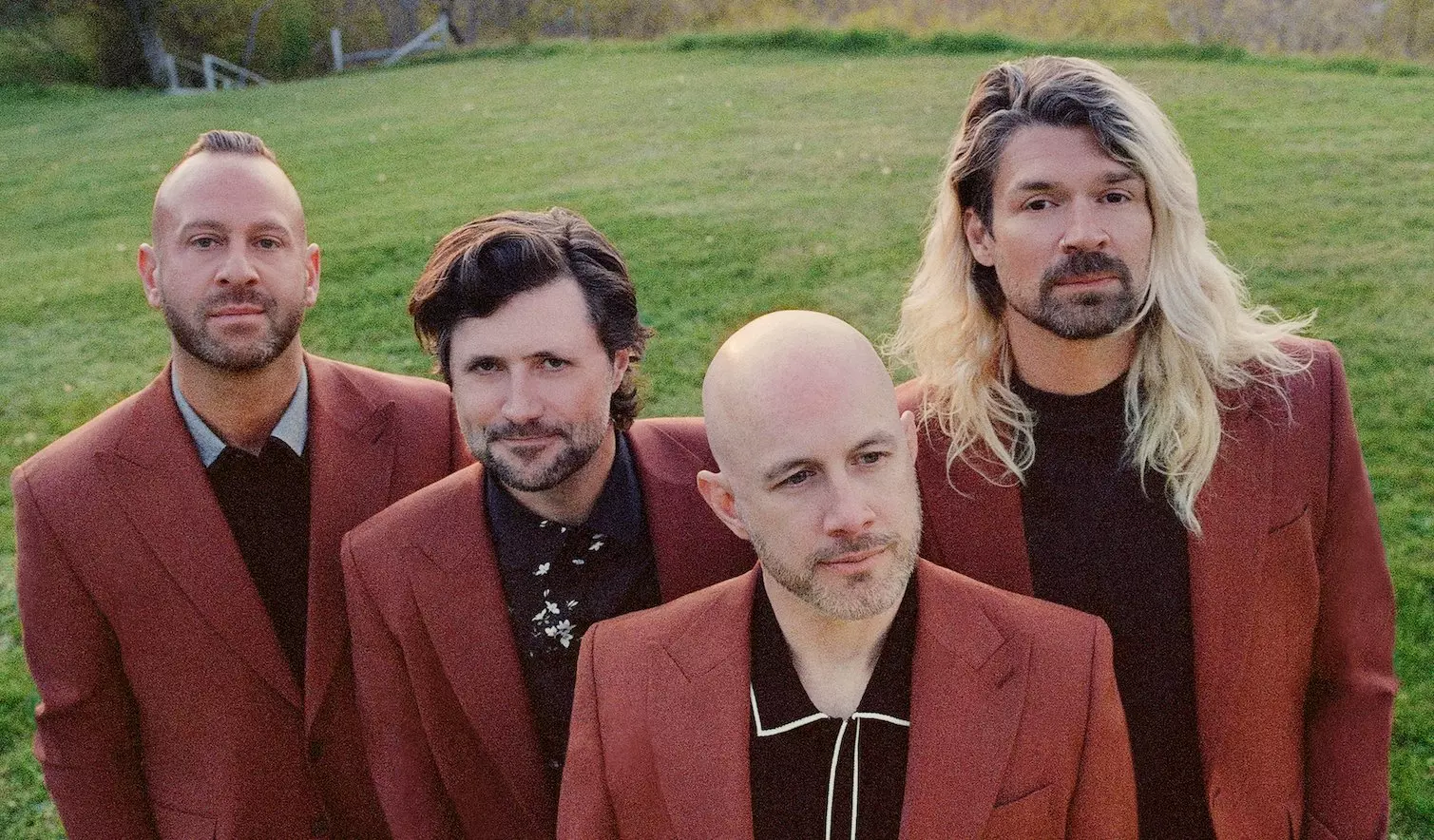
Taking Back Sunday's John Nolan Revisits 'Tell All Your Friends'
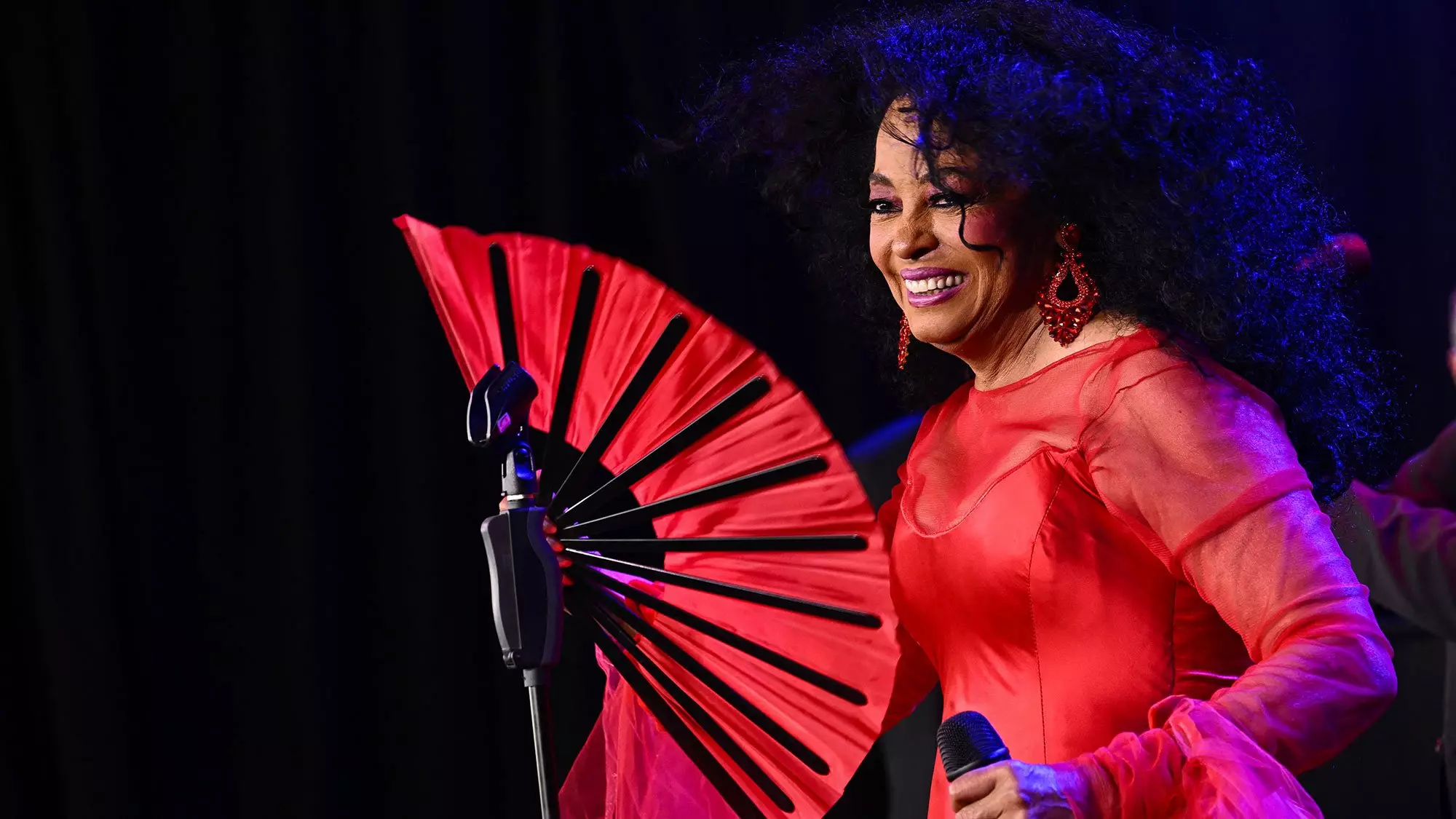
Get Ready For Fool In Love Fest With This Soulful Playlist: Hits & B-Sides From Chaka Khan, Thee Sacred Souls, Smokey Robinson & More

8 Can't-Miss Acts At Afro Nation Detroit 2024: Shenseea, Ayra Starr, Kizz Daniel & More
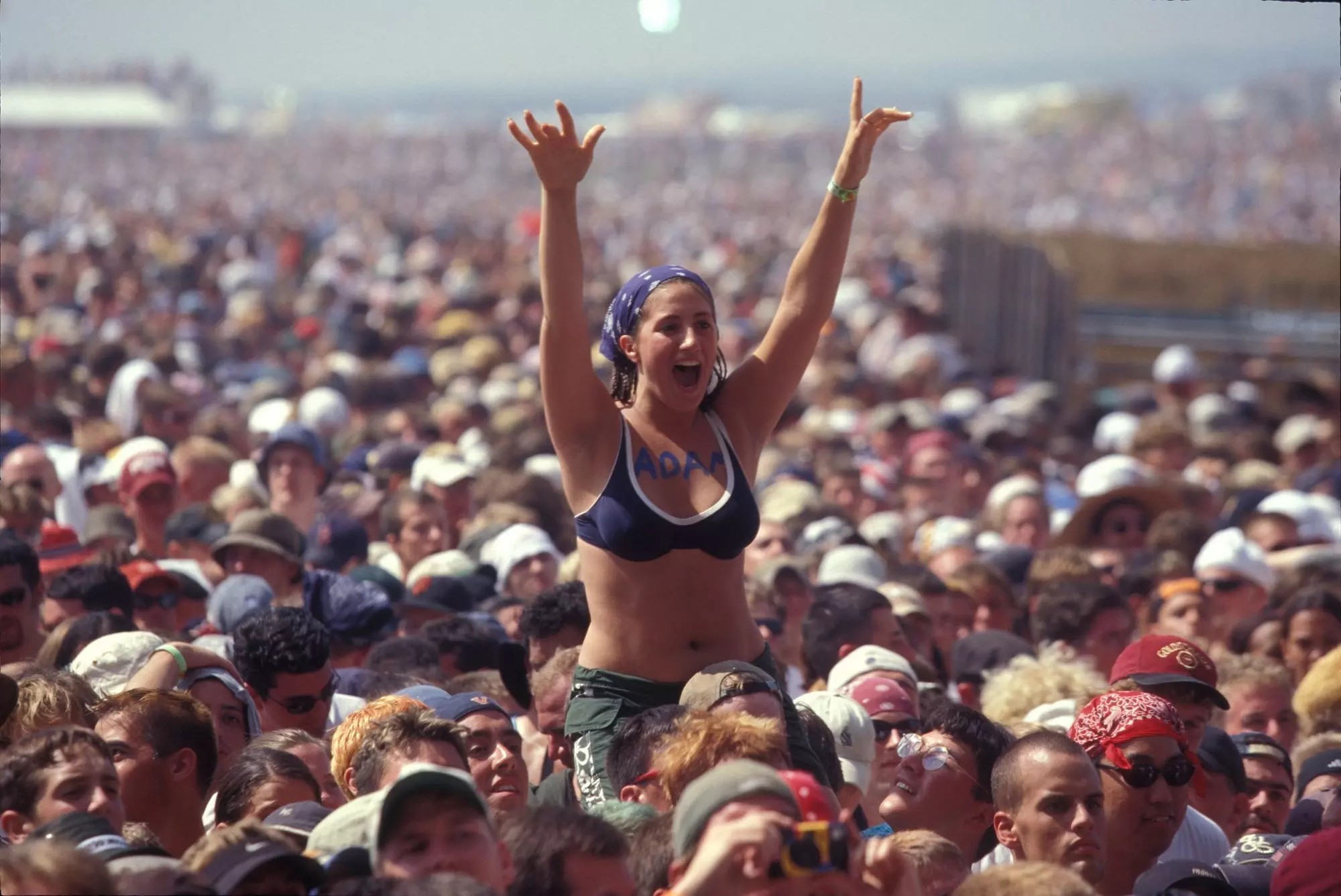
On This Day In Music: Woodstock '94 Begins In Upstate New York
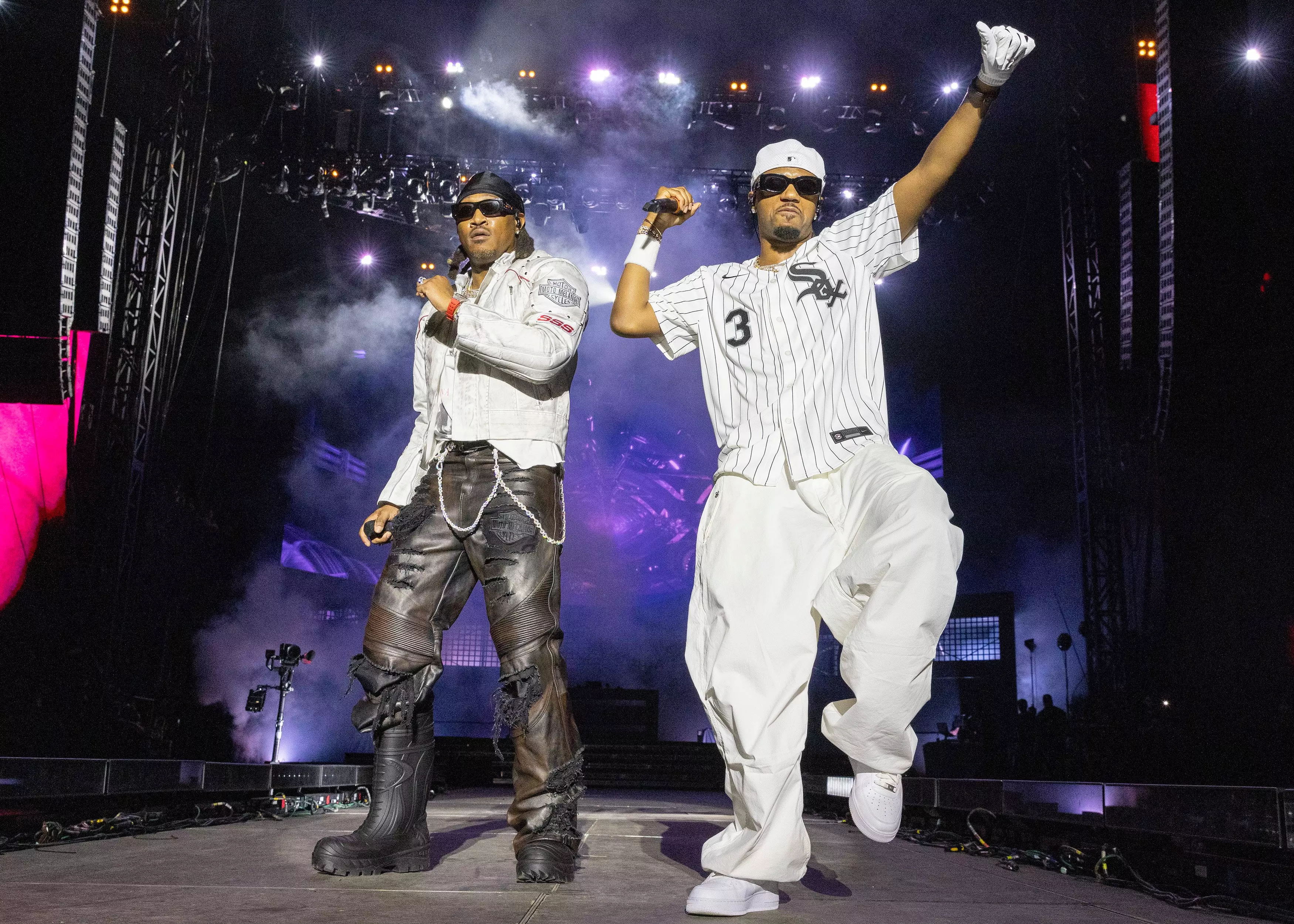
7 Stellar Sets From Lollapalooza 2024: Megan Thee Stallion, Future x Metro Boomin & More
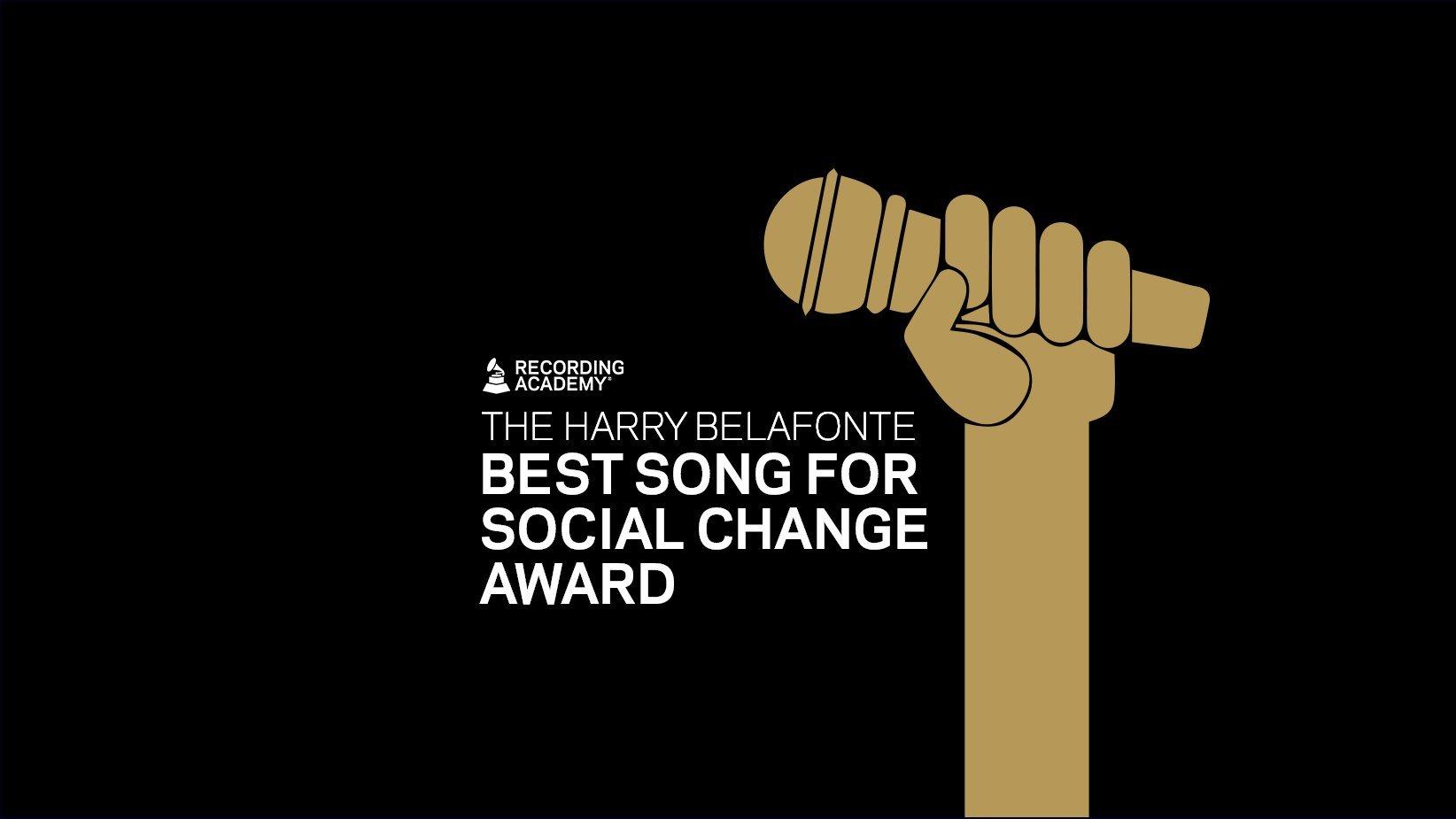
Graphic courtesy of the Recording Academy
news
Recording Academy Renames Best Song For Social Change Award In Honor Of Harry Belafonte
Submissions for the newly renamed Harry Belafonte Best Song For Social Change Award, which honors songwriters and message-driven music that address a timely social issue and promote peace-building, are open now through Friday, Aug. 30.
The Recording Academy has renamed and recategorized its annual Best Song For Social Change Special Merit Award to the Harry Belafonte Best Song For Social Change Award in honor of the late entertainment industry icon who was a powerful voice for social justice throughout his illustrious career. Originally established in 2022, the award will continue to honor songwriters of message-driven music that speaks to the social issues of our time and has demonstrated and inspired positive global impact.
Formerly a Special Merit Award, the Harry Belafonte Best Song For Social Change Award will now be categorized as a CEO's Merit Award; finalists and the recipients will be selected annually by a Committee composed of a community of peers dedicated to artistic expression, the craft of songwriting, and the power of songs to effect social change.
The submission period for the current cycle of the Harry Belafonte Best Song For Social Change Award is Wednesday, July 17 — Friday, Aug. 30. The inaugural Harry Belafonte Best Song For Social Change Award will be presented during the 2025 GRAMMY Awards season.
Read the Harry Belafonte Best Song For Social Change Award guidelines and make a submission here. Learn more about the award and see all of the past recipients.
Read More: Remembering Harry Belafonte’s Monumental Legacy: A Life In Music, A Passion For Activism
From his debut in the 1950s until his passing in 2023, Belafonte's artistic career progressed in parallel with his work as a trailblazing activist. An important friend of Rev. Dr. Martin Luther King Jr. and advisor, organizer and funder of the Civil Rights Movement, Belafonte helped organize the 1961 March on Washington for Jobs and Freedom and contributed to the 1961 Freedom Rides and the Mississippi Freedom Summer of 1964. Belafonte was outspoken throughout his career about American political elections; he performed at President John F. Kennedy's inaugural ball and was later named as a cultural advisor to the Peace Corps by Kennedy.
Creating the gold record standard in the music industry, Belafonte's 1956 RCA album CALYPSO made him the first artist in history to sell over 1 million albums. An advocate for global humanitarian causes including the Anti-Apartheid Movement and USA for Africa, Belafonte, in 1985, was the key organizer for the benefit single "We Are The World," which raised money for famine relief in Africa and ultimately won four GRAMMY Awards; it remains one of the best-selling physical singles of all time. As well, Belafonte became a UNICEF Goodwill Ambassador in 1987 and traveled internationally to raise awareness for the needs of children across sub-Saharan Africa.
A two-time GRAMMY winner and 11-time GRAMMY nominee, Belafonte received the Recording Academy's Lifetime Achievement Award in 2000. Three of Belafonte's recordings are inducted into the GRAMMY Hall of Fame: Belafonte At Carnegie Hall (inducted in 1999), "Banana Boat (Day-O)" (inducted in 2009), and Calypso (inducted in 2015).
Read More: Fight The Power: 11 Powerful Protest Songs Advocating For Racial Justice
"The greatness of Harry Belafonte's artistic legacy is matched by his profound impact of furthering social justice for all," Recording Academy CEO Harvey Mason jr. said in a statement. "We are honored to recognize his lasting influence with the Harry Belafonte Best Song for Social Change Award and to continue celebrating works that have inspired global communities towards social impact."
"The Belafonte estate is deeply honored and thrilled that the Recording Academy's Best Song For Social Change Award will now be named the Harry Belafonte Best Song For Social Change Award," Belafonte's living family members and Belafonte estate representatives Adrienne, Shari, Gina, and Pamela Belafonte said in a statement. "This recognition not only celebrates Harry Belafonte's enduring legacy in music and activism, but also inspires future generations to continue using their voices and art for justice and positive change."
The original Best Song For Social Change Special Merit Award debuted at the 2023 GRAMMYs. The inaugural award, presented by First Lady Jill Biden, went to "Baraye" by Iranian singer/songwriter Shervin Hajipour. At the 2024 GRAMMYs, the award went to "Refugee" by K'naan, Steve McEwan, and Gerald Eaton. "The words [K'naan] wrote for the song resonate with me like not many songs do," McEwan said about "Refugee" in an interview featured in the 2024 GRAMMYs program book.
Read More About Harry Belafonte
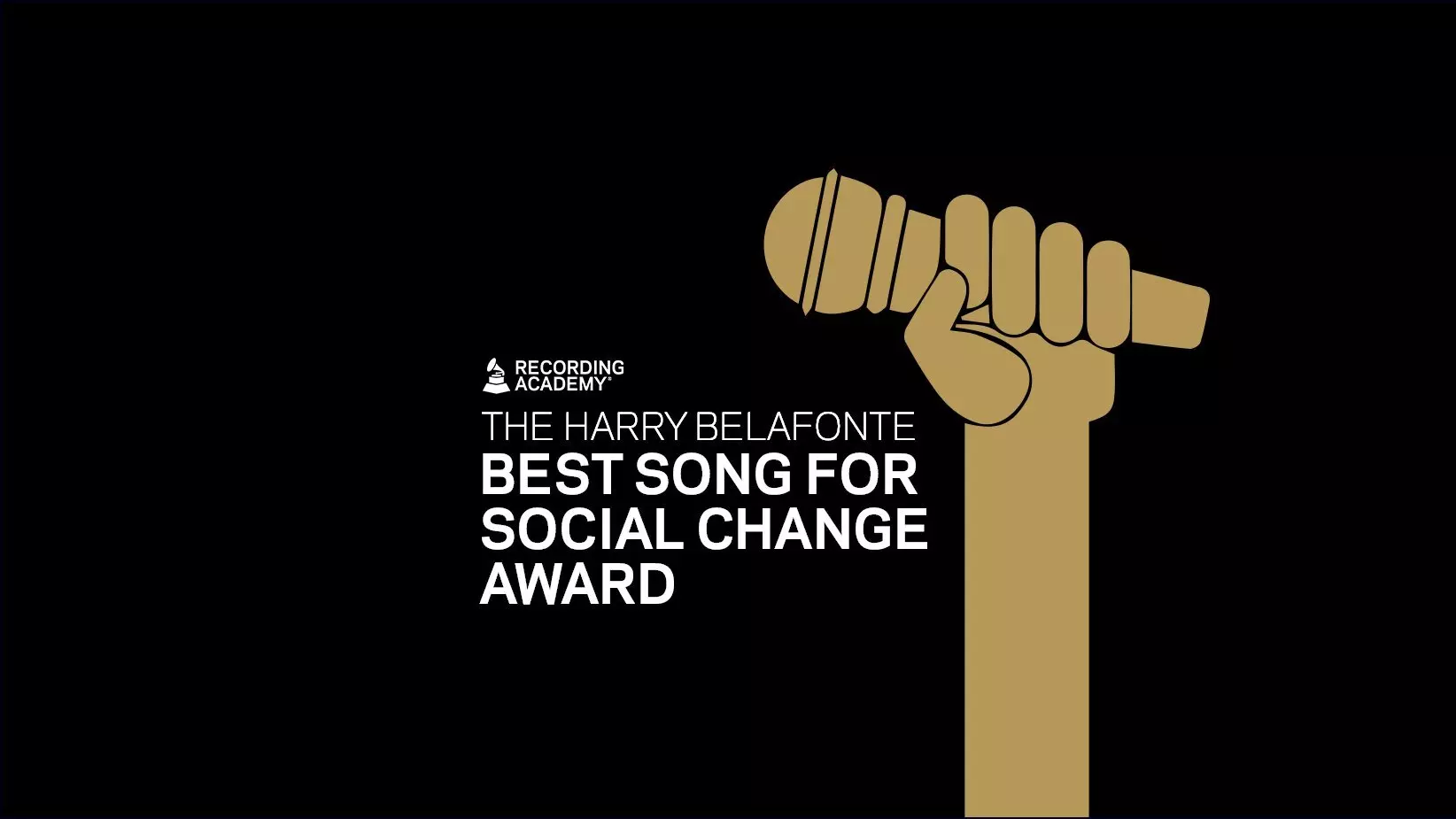
Recording Academy Renames Best Song For Social Change Award In Honor Of Harry Belafonte
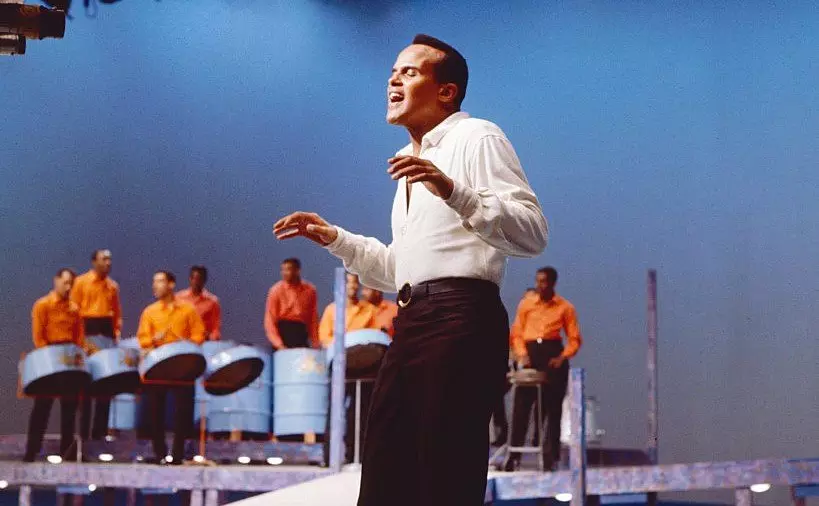
Remembering Harry Belafonte’s Monumental Legacy: A Life In Music, A Passion For Activism
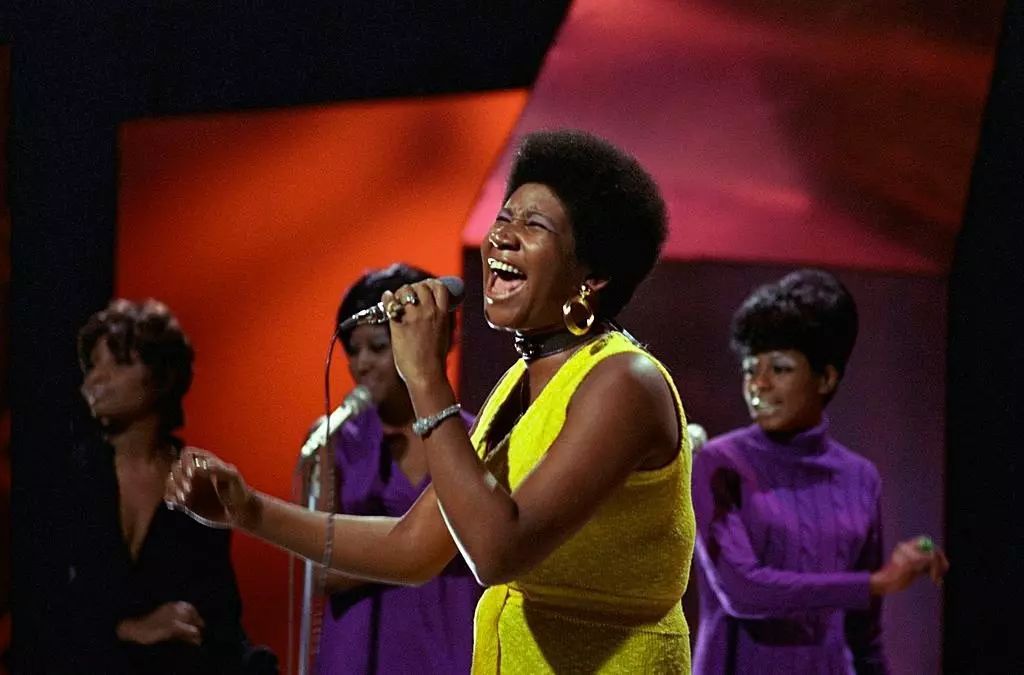
From Aretha Franklin To Public Enemy, Here's How Artists Have Amplified Social Justice Movements Through Music
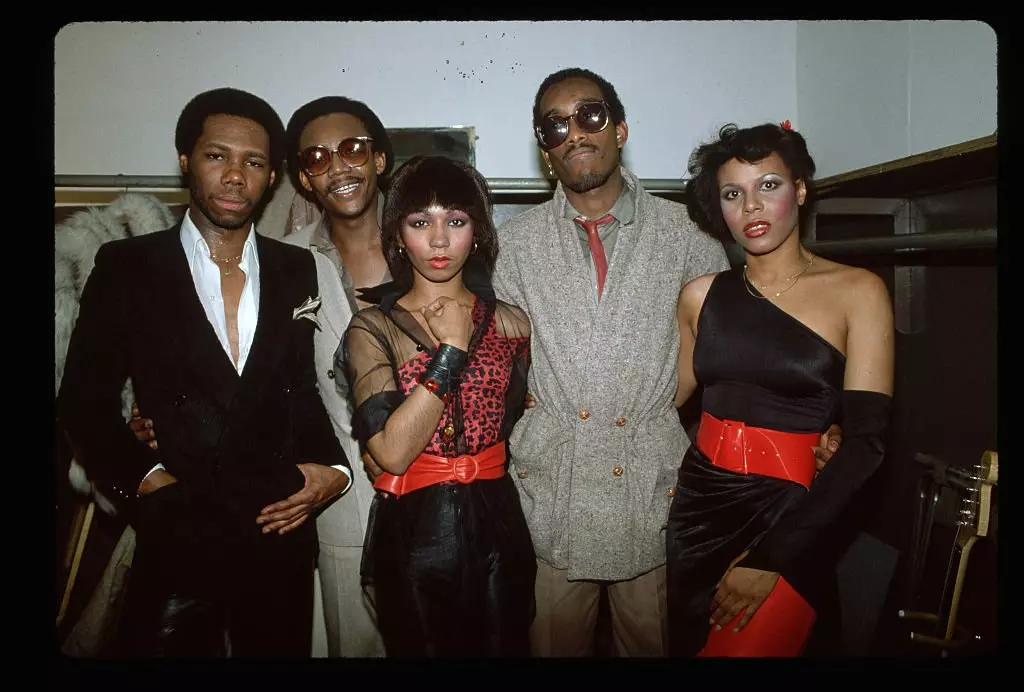
Library Of Congress Adds Recordings By Chic, Tony Bennett, Fleetwood Mac
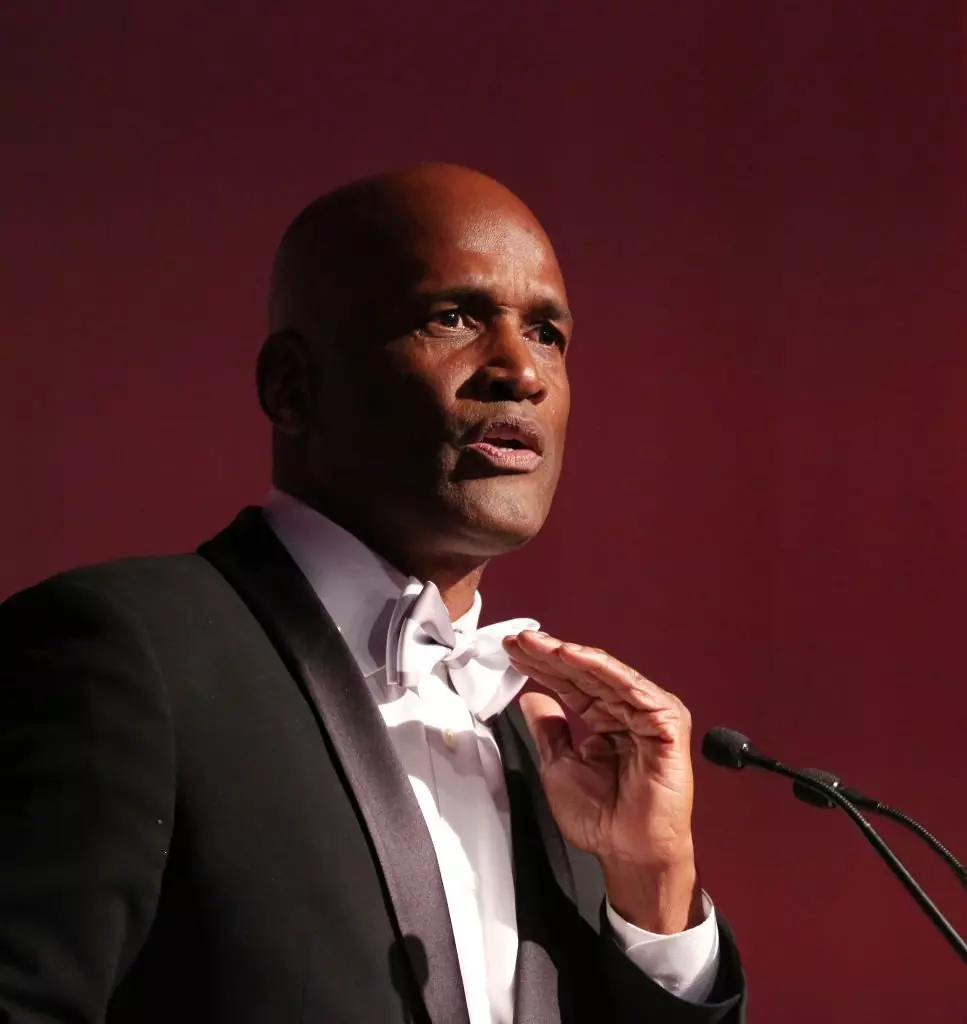
Kenny Leon Reprising Tupac Musical In Atlanta
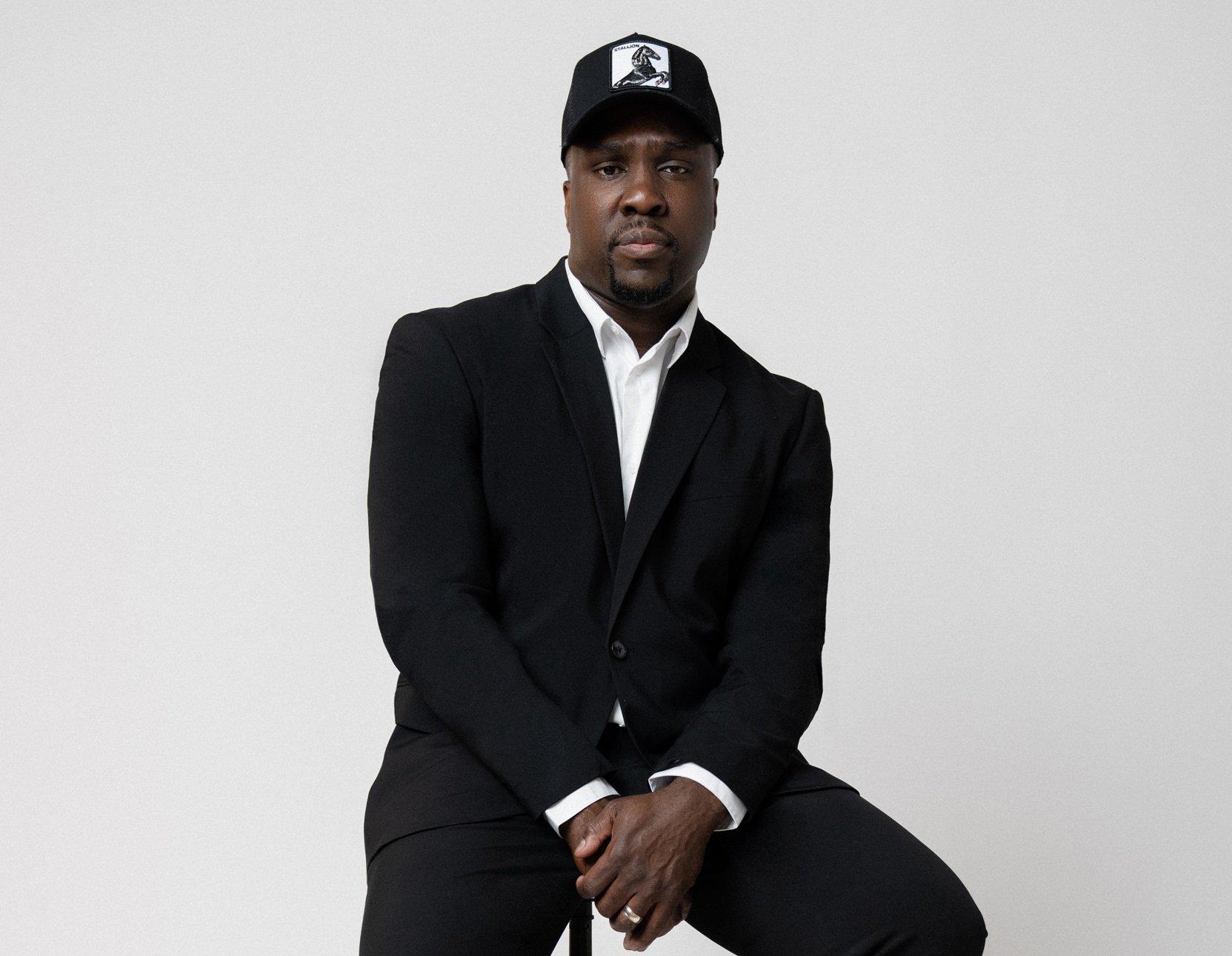
Photo: Oye Diran
interview
Meet Derrick Hodge, The Composer Orchestrating Hip-Hop's Symphony
From Nas' 'Illmatic' to modern hip-hop symphonies, Derrick Hodge seamlessly bridges the worlds of classical and hip-hop music, bringing orchestral elegance to iconic rap anthems.
Over the last 50 years, hip-hop culture has shown it can catalyze trends in fashion and music across numerous styles and genres, from streetwear to classical music. On June 30, Nas took his place at Red Rocks Amphitheater in a full tuxedo, blending the worlds of hip-hop and Black Tie once again, with the help of Derrick Hodge.
On this warm summer eve in Morrison, Colorado, Nas performed his opus, Illmatic, with Hodge conducting the Colorado Symphony Orchestra. The show marked a belated 30-year celebration of the album, originally released on April 19, 1994.
As Nas delivered his icy rhymes on classics like "N.Y. State of Mind," "Memory Lane (Sittin' in da Park)," and "Halftime," the orchestra held down the beat with a wave of Hodge's baton. The winds, strings, and percussion seamlessly transitioned from underscoring Nas's lyrics with sweeping harmonic layers to leading melodic orchestral flourishes and interludes. For the album's final track, "Ain't Hard to Tell," the orchestra expanded on Michael Jackson's "Human Nature," expertly sampled originally by producer Large Professor.
Derrick Hodge is a pivotal figure in modern music. His career spans writing and performing the famous bassline on Common's "Be," composing for Spike Lee's HBO documentary "When the Levees Broke: A Requiem in Four Acts," and his own solo career that includes his latest experimental jazz album, COLOR OF NOIZE. Hodge also made history by bringing hip-hop to the Kennedy Center with orchestra accompaniments for Illmatic to celebrate the album's 20th anniversary in 2014.
"That was the first time hip-hop was accepted in those walls," Hodge says sitting backstage at Red Rocks. It was also the first time Hodge composed orchestral accompaniments to a hip-hop album.
Since then, Hodge has composed symphonic works for other rappers including Jeezy and Common, and is set to deliver a symphonic rendition of Anderson .Paak's 2016 album, Malibu, at the Hollywood Bowl in September.
Hodge's passion for orchestral composition began when he was very young. He played upright bass by age seven and continued to practice classical composition in his spare moments while touring as a bassist with Terence Blanchard and Robert Glasper. On planes. In dressing rooms. In the van to and from the gig.
"It started as a dream. I didn't know how it was going to be realized. My only way to pursue that dream was just to do it without an opportunity in sight," Hodge says. "Who would've known that all that time people were watching? Friends were watching and word-of-mouth."
His dedication and word-of-mouth reputation eventually led Nas to entrust him with the orchestral arrangements for Illmatic. He asked Hodge and another arranger, Tim Davies, to write for the performance at the Kennedy Center.
"[Nas] didn't know much about me at all," Hodge says. "For him to trust how I was going to paint that story for an album that is very important to him and important to the culture, I have not taken that for granted."
Read more: How 'Illmatic' Defined East Coast Rap: Nas’ Landmark Debut Turns 30
Those parts Hodge wrote for the Kennedy Center are the same parts he conducted at Red Rocks. Over a decade later, he channels the same drive and hunger he had when he was practicing his compositions between gigs. "I hope that I never let go of that. I feel like these opportunities keep coming because I'm approaching each one with that conviction. Like this could be my last."
Before this latest performance, GRAMMY.com spoke with Hodge about bridging the worlds of classical and hip-hop, influencing the next generation of classical musicians, and how his experience as a bassist helps him lead an orchestra.
Throughout history, orchestral music has been celebrated by the highest echelons of society, whereas hip-hop has often been shunned by that echelon. What is it like for you to bring those two worlds together?
I love it. I've embraced the opportunity since day one. I was a young man showing up with Timberlands on and cornrows in my hair, and I knew the tendency to act and move in a certain perception was there. I knew then I have to represent hope in everything I do. I choose to this day to walk with a certain pair of blinders on because I feel like it's necessary. Because of that I never worry about how the classical world perceives me.
Oftentimes I'll stand before them and I know there may be questions but the love I show them, what I demand of them, and how I show appreciation when they take the music seriously…almost every situation has led to lifelong friendships.
I believe that's been part of my purpose. It's not even been to change minds or change perceptions. In serving the moment, even when people have preconceptions, they're in front of me playing music I wrote. How do I serve them best? How do I bring out the best in them just like I'm trying to bring out the best in the storyline of a hip-hop artist that may not relate to their story at all? The answer is just to be selfless. That's eliminated the distraction of trying to convince minds.
With that unifying principle, would you consider conducting the orchestra the same thing as playing bass with Robert Glasper?
The way I try to be selfless and serve the moment, it's no different. Maybe the skillset that's required. For example, conducting or working within a framework of composed music requires a certain way of making sure everybody's on the same page so we can get through these things on time and keep going. But I serve that moment no differently than when myself and Robert Glasper, Chris Dave, Casey Benjamin RIP, are creating a song in the moment.
I actually don't even think about how one thing is affecting the other. I will say the beauty of the bass and the bassists that have influenced me — from Ron Carter to the great Marcus Miller, Victor Wooten — is the way they can stand out while never abandoning the emotion of the moment. Remembering what is perceived as the role of the bass and how it glues things in a unique way. Harmonically and rhythmically. Being aware of the responsibility of being aware of everything.
I think that's one thing that's carried over to orchestrating and thinking about balances and how to convey emotion. I think some things are innate with bassists. We're always navigating through harmony and having a conversation through a lens of placement with drums. Placement with the diction if they're singers or rappers. There are a lot of decisions bass players are making in the moment that we don't even think about. It's just secondhand. But it's how are we serving what's necessary to make the conversation unified. I think that's one thing that's served me well in composition.
What's one song you're particularly excited to dive into for the Anderson .Paak arrangements?
So I'm intentionally not thinking in that way because we decided to treat it like a movie. Start to finish no matter what. With that in mind, I'm trying to approach it as if the whole thing is an arcing story because I didn't realize the succession of how he placed that record was really important to him.
**Hip-hop is often a very minimalist genre while an orchestra is frequently the opposite with dozens of instruments. How do you maintain that minimalist feel when writing orchestra parts for hip-hop albums like Illmatic?**
I'm so glad you asked that because that was the biggest overarching thing I had to deal with on the first one. With Nas. Because Illmatic, people love that as it is. Every little thing. It wasn't just the production. Nas's diction in between it, how he wrote it, how he told the story, and the pace he spoke through it. That's what made it. So the biggest thing is how do I honor that but also try to tell the story that honors the narrative of symphonic works? [The orchestra is] fully involved. How do I do things in a way where they are engaged without forcing them?
Illmatic was a part of my soundtrack. So I started with the song that meant the most to me at that time: "The World is Yours." That was the first piece I finished, and I emailed Pete Rock and asked "How is this feeling to you?" If the spirit of the song is speaking to him then I feel like this is something I can give to the people no matter how I feel about it. And he gave the thumbs up.
So instead of overly trying to prove a point within the flow of the lyrics, how do we pick those moments when the orchestra is exposed? Let them be fully exposed. Let them tell a story leading into that. Make what they do best marry well into what Nas and the spirit of hip-hop and hip-hop sampling do best. And then let there be a dance in between.
That first [Illmatic] show was a great experiment for me. I try to carve out moments whenever I can. Let me figure out what's a story that can combine this moment with this moment. That's become the beauty. Especially within the rap genre. To let something new that they're not familiar with lead into this story.
*Derrick Hodge conducts the Colorado Symphony Orchestra at Red Rocks* | Amanda Tipton
The orchestra is just as excited to play it as Nas is to have them behind him.
And that reflects my story. I try to dedicate more time to thinking about that, and that normally ends up reciprocated back in the way they're phrasing. In the way they're honoring the bowings. In the way they're honoring the breaths that I wrote in for them. They start to honor that in a way because they know we're coming to try and have a conversation with these orchestras. That's one thing I try to make sure no matter what. It's a conversation and that goes back to the moment as well.
I've seen other composers put an orchestral touch on hip-hop in recent years. For example, Miguel Atwood-Ferguson wrote orchestral parts to celebrate Biggie's 50th birthday. Would you say integrating an orchestra into hip-hop is becoming more popular?
It has become popular, especially in terms of catching the eyes of a lot of the different symphonies that might not have opened up their doors to that as frequently in the past. These opportunities — I appreciate the love shown where my name is mentioned in terms of the inception of things. But I approach it with a lot of gratitude because others were doing it and were willing to honor the music the same. There are many that wish they had that opportunity so I try to represent them.
With these more modern applications of orchestral music, I feel like there will be an explosion of talent within the classical realm in the next few years. Kids will think it's cool to play classical again.
The possibility of that just brings joy to me. Not just because it's a spark, but hopefully the feeling in the music they relate to. Hopefully there is something in it, aside from seeing it done, that feels that it relates to their story. I have confidence if I'm true to myself, hopefully, each time in the music it's going to feel like it's something relevant to the people. The more I can help foster platforms where people are free to be themselves, and where they can honor the music—I hope that mentality becomes infectious.
More Rap News
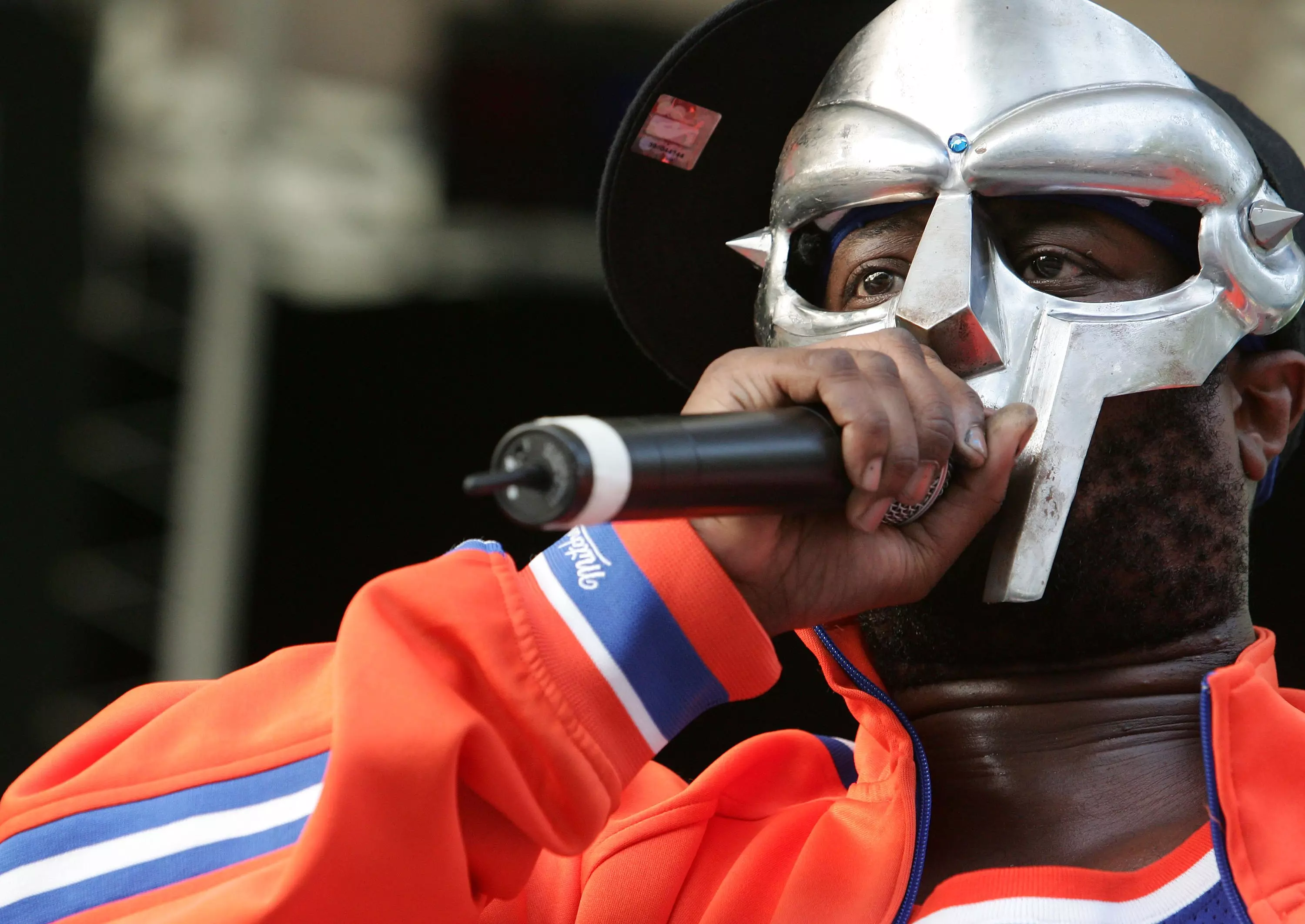
10 Facts About MF DOOM's 'Mm.Food': From Special Herbs To OG Cover Art

6 Indian Hip-Hop Artists To Know: Hanumankind, Pho, Chaar Diwaari & More
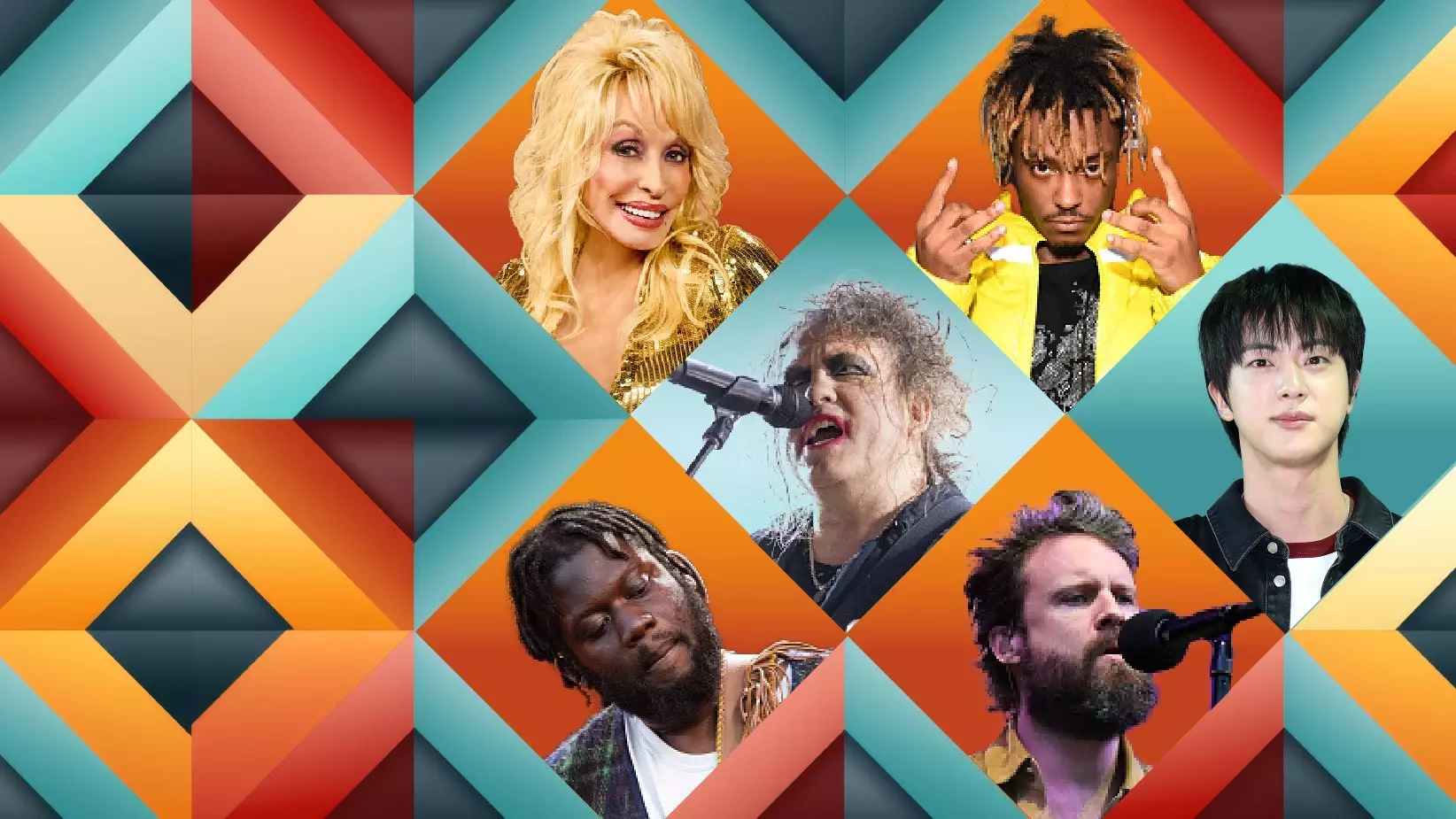
14 Must-Hear Albums In November: The Cure, Dolly Parton, Jin Of BTS, Ab-Soul, & More

Blxst Reveals His Favorite Studio Monitors
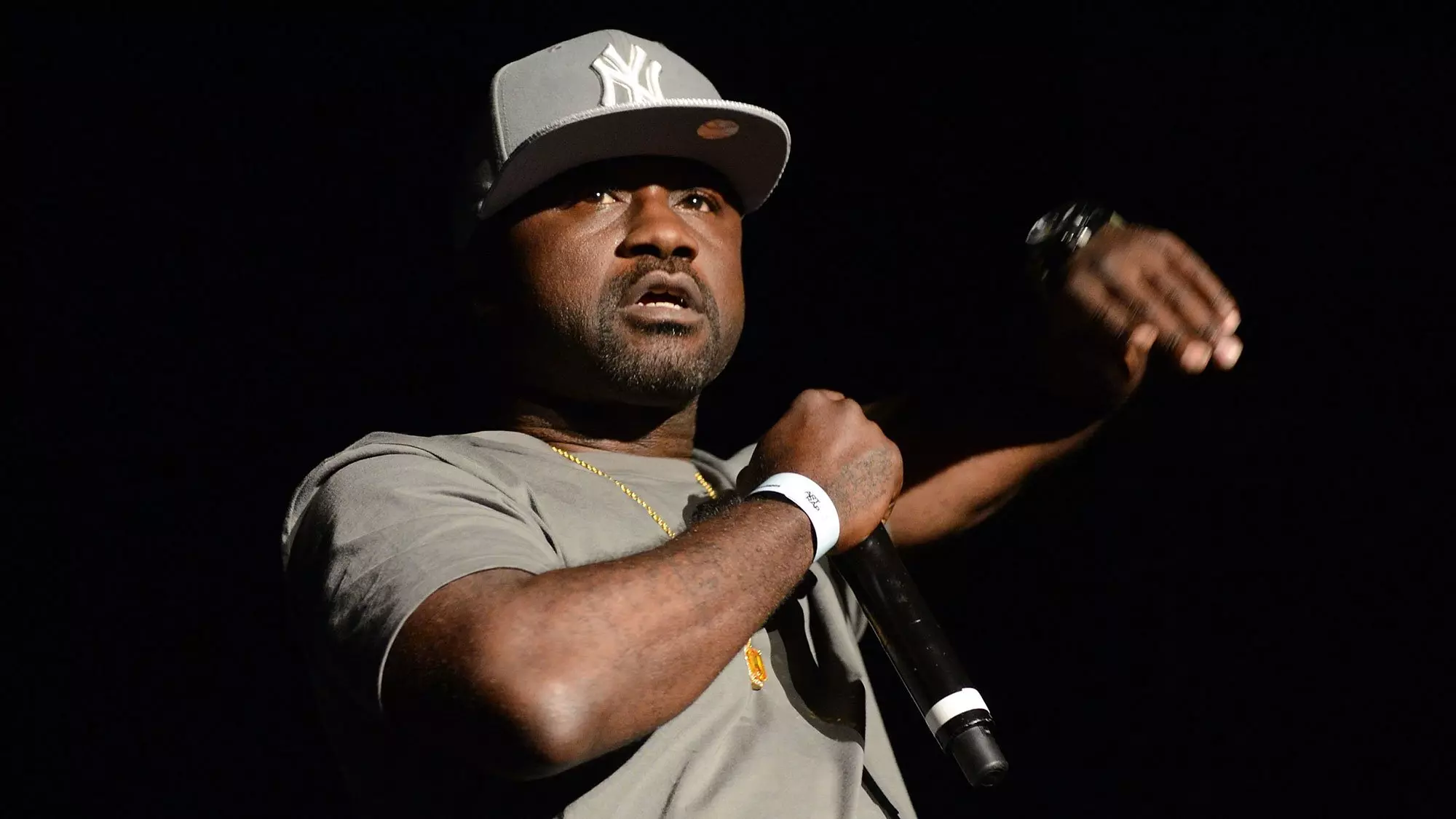
Living Legends: Havoc Talks Mobb Deep’s Legacy & The Double-Edged Life Of A Rapper-Producer

Photo: Amy Lee
list
5 Rising L.A. Rappers To Know: Jayson Cash, 310babii & More
From San Diego to the Bay Area, Seattle and beyond, the West Coast bursts with talent. Los Angeles is at the heart of this expanse, and these five rappers are just a few who are showcasing the vibrant sounds of West Coast hip-hop.
GRAMMY winners Kendrick Lamar and Mustard have long repped their California roots. Earlier this summer, their powerhouse anthem "Not Like Us" brought West Coast rap back to its roots and shone a global spotlight on the scene.
Lamar and Mustard are at the forefront of a renaissance in West Coast rap. Their shared roots in Southern California cities — Mustard from Los Angeles and Kendrick from Compton — adds authenticity and resonance to their partnership. Their undeniable chemistry was on display in the video for "Not Like Us," which received a million views less than an hour after its release.
Mustard's signature beats and Lamar's profound lyricism has resurfaced the sound and culture that makes West Coast rap so unique and paved the way for a new generation of artists. All signs suggest that another impactful collaboration may appear on Mustard's upcoming album, Faith of A Mustard Seed.
Learn more: A Guide To Southern California Hip-Hop: Definitive Releases, Artists & Subgenres From L.A. & Beyond
Kendrick Lamar headlined the electrifying Pop Out concert on Juneteenth, which also featured sets from Mustard and DJ Hed. The event saw a handful of L.A. rappers, opening for Lamar in a showcase of the vibrant talent that defines the region's rap scene.
The West Coast is a vast reservoir of talent, stretching from the Bay Area to Seattle. At the heart of this creative expanse is Los Angeles, which brings fresh perspectives, innovative styles, and renewed energy to hip-hop, ensuring the genre thrives. With the stage set for these newcomers to shine, it's the perfect time to take a closer look at some of the rising talents poised to impact the rap scene. While this list only scratches the surface, it offers a glimpse into the diverse and exciting talent from SoCal, the epicenter of the West.
Blxst
Arising from Los Angeles, Blxst initially played the background as a producer but soon demonstrated his ability to excel across all facets of music creation. Blxst's breakout moment came with his platinum-certified single "Chosen," which solidified his place in the music industry. His collaboration on Kendrick Lamar's "Die Hard" from Mr. Morale And The Big Steppers further showcased his skill for crafting hooks that elevate tracks, resulting in two GRAMMY nominations.
As he prepares to release his debut album, I'll Always Come Find You on July 19, Blxst stands at a pivotal point in his career. With a great resume already to his name, his forthcoming album promises to showcase his undeniable talent and leave a lasting impact on the West Coast music scene.
Bino Rideaux
Bino Rideaux is a South Central native and frequent collaborator with the GRAMMY-winning rapper Nipsey Hussle. He is the only artist to have a joint project with Hussle, No Pressure, released before the prolific rapper's untimely death. Rideaux has hinted at having a treasure of unreleased music with Hussle, saved for the perfect moment and album.
Rideaux is known for creating tracks that get the city outside and dancing. He has made three beloved projects with Blxst, titled Sixtape, Sixtape 2, and Sixtape 3 resulting in sold-out shows and a special place in West Coast Rap fans' hearts. Endorsed by industry heavyweights like Young Thug, Rideaux continues to carve his path at his own pace. His journey is nothing short of a marathon, echoing the enduring legacy of his mentor.
Kalan.FrFr
Kalan.FrFr, whose name stands for "For Real For Real," is an artist whose music is as genuine as his name suggests. Growing up in Compton and Carson, Kalan.FrFr has always stayed true to his roots, and exudes the unyielding confidence essential to making it in the City of Angels.
His breakthrough mixtape, TwoFr, showcased his ability to shine without major features, delivering verses with catchy hooks and melodic rap. He's shown he's not confined to one sound, delivering vulnerable tracks like "Going Through Things'' and "Never Lose You." His EP Make the West Great Again, Kalan.FrFr both proves his loyalty to his origins and highlights his versatility. Kalan.FrFr's signature punch-in, no-writing-lyrics-down style keeps his fans on their toes, ensuring that whatever comes next is unpredictable but authentic.
Jayson Cash
Jayson Cash, a rapper hailing from Carson — the same city as TDE artist Ab-Soul — stays true to West Coast rap, from his lyrics to his beat selection. Listening to Jayson Cash's music is like diving into a vivid life narrative. His prowess as a lyricist and storyteller shines through in every verse. He gives his fans an insight into his journey, making it a relatable music experience.
Cash made waves with his debut mixtape, Read The Room, and scored a Mustard beat on the song "Top Down." Two years later, their collaboration continues, with Cash writing on Mustard's upcoming album. Though often seen as an underdog, Cash is not to be underestimated, earning cosigns from West Coast legends like Suga Free and Snoop Dogg. His latest project, Alright Bet, includes a notable feature from Dom Kennedy.
310babii
310babii has achieved platinum-selling status at just 18 years old, while successfully graduating high school. Yet 310babii's career began in seventh grade, when he recording songs on his phone showing early signs of motivation and creativity. His 2023 breakout hit "Soak City (Do It)" quickly gained traction on TikTok — and caught the ears of Travis Scott and NFL player CJ Stroud.
As the song grew in popularity, it led to a remix produced by Mustard, who invited the Inglewood native to join him onstage during his set at The Pop Out. 310babii's innovative spirit shines through in his distinctive visuals, exemplified by the captivating video for his song "Back It Up." His recent debut album, Nights and Weekends, released in February, underscores his evolving talent and promise within the music industry.
Latest News & Exclusive Videos
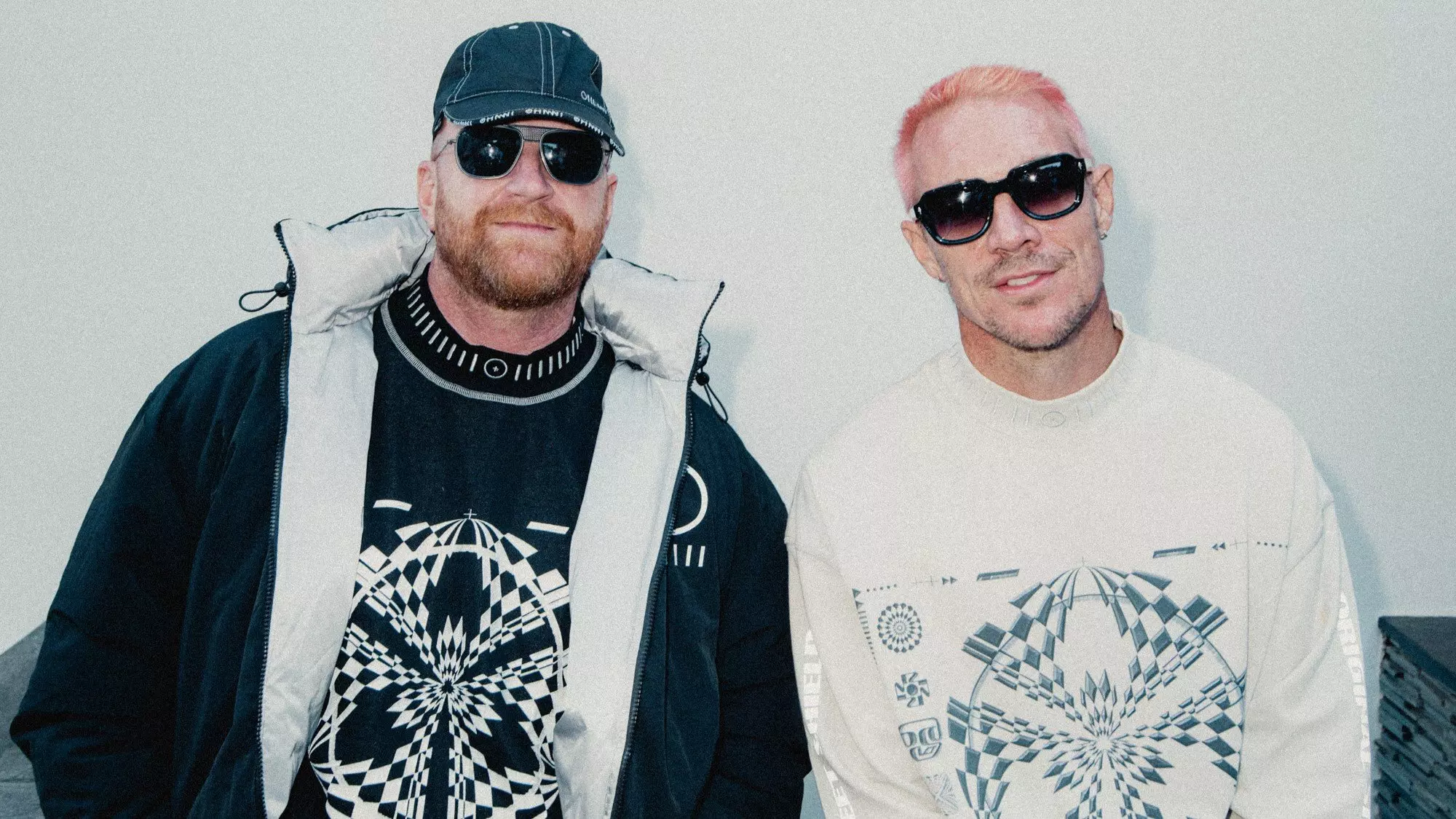
How Major Lazer's 'Guns Don't Kill People…Lazers Do' Brought Dancehall To The Global Dance Floor

YOASOBI Performs "Idol" | Global Spin
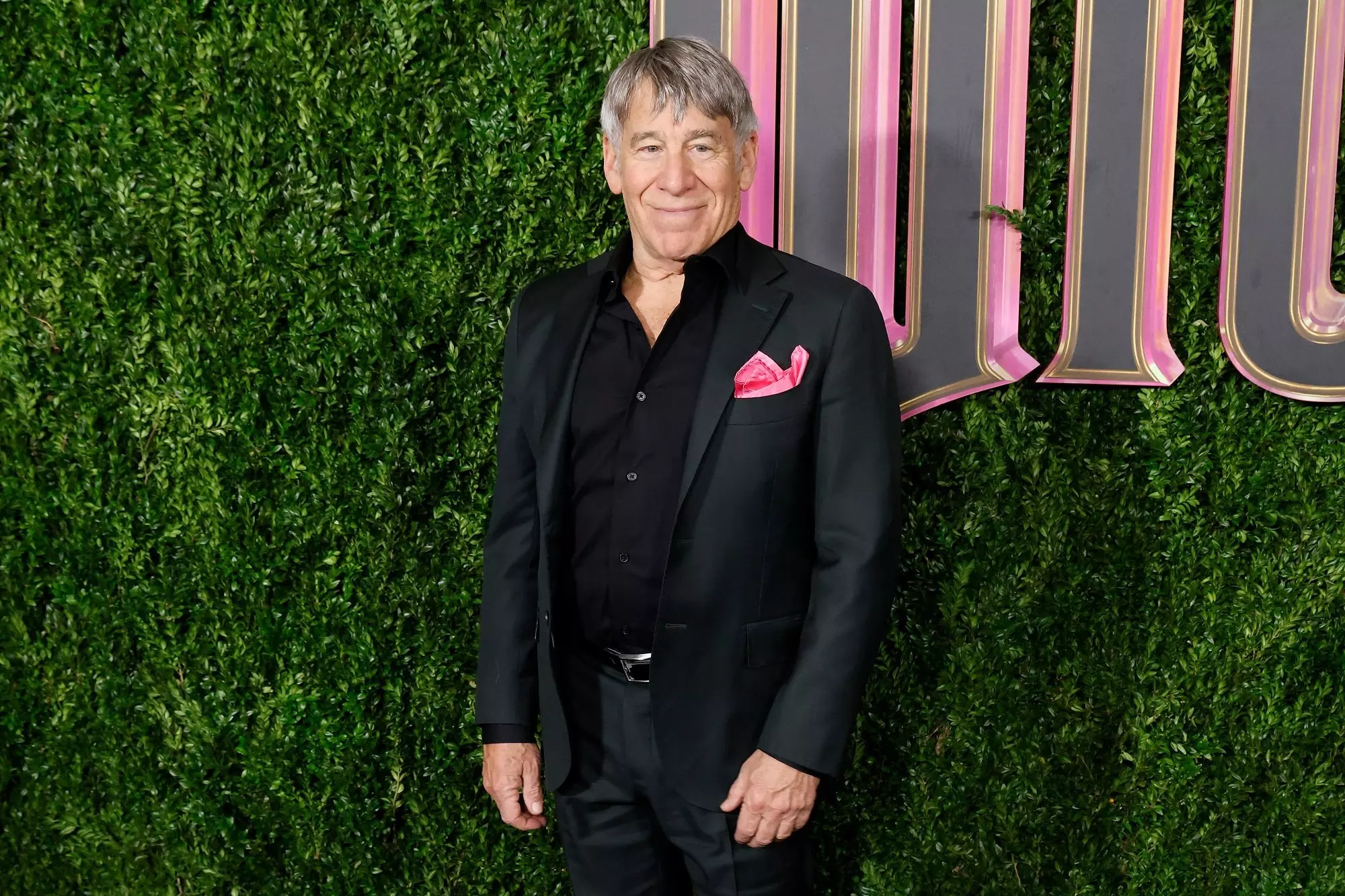
'Wicked' Composer Stephen Schwartz Details His Journey Down The Yellow Brick Road
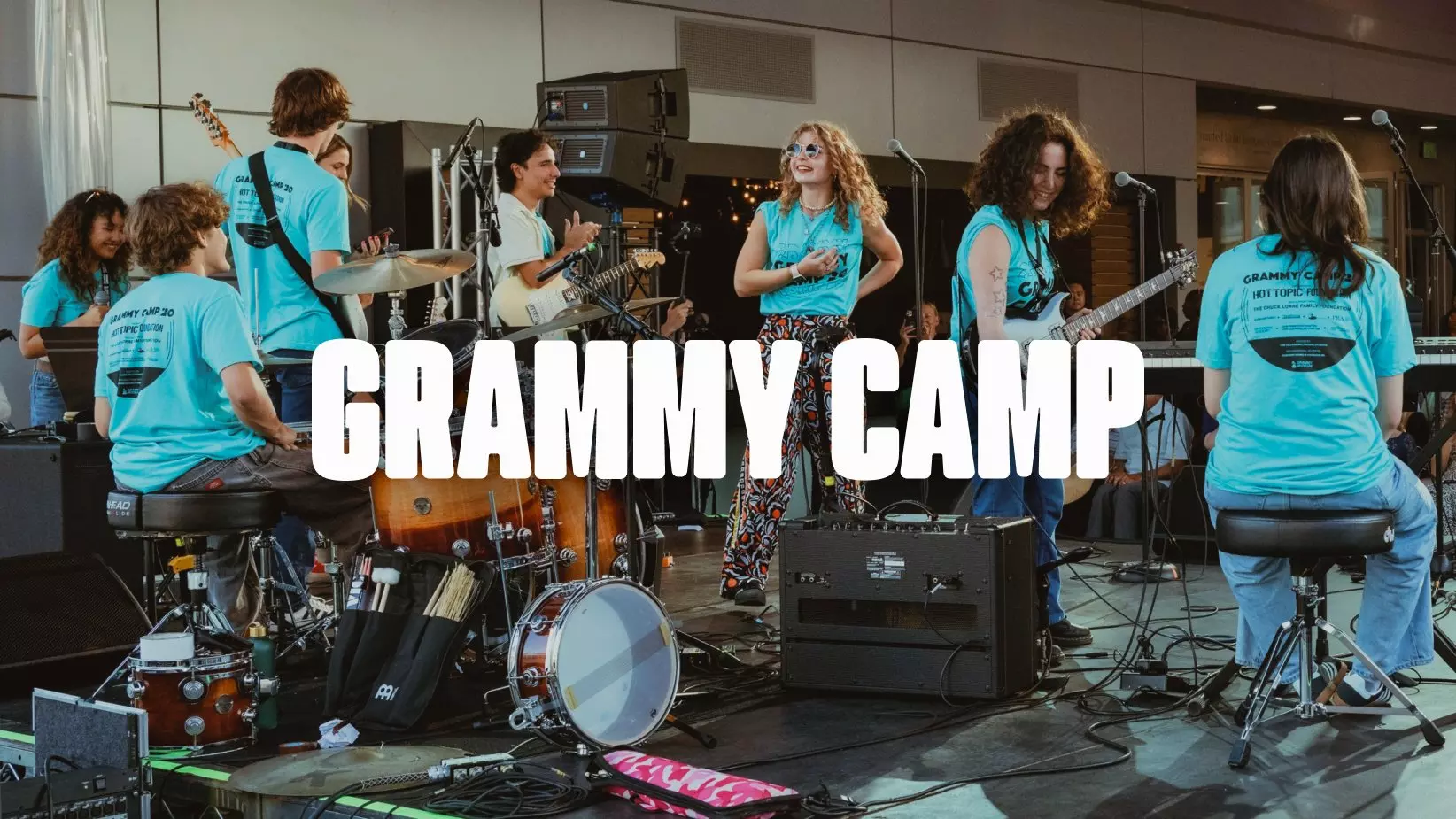
GRAMMY Museum Expands GRAMMY Camp To New York & Miami For Summer 2025
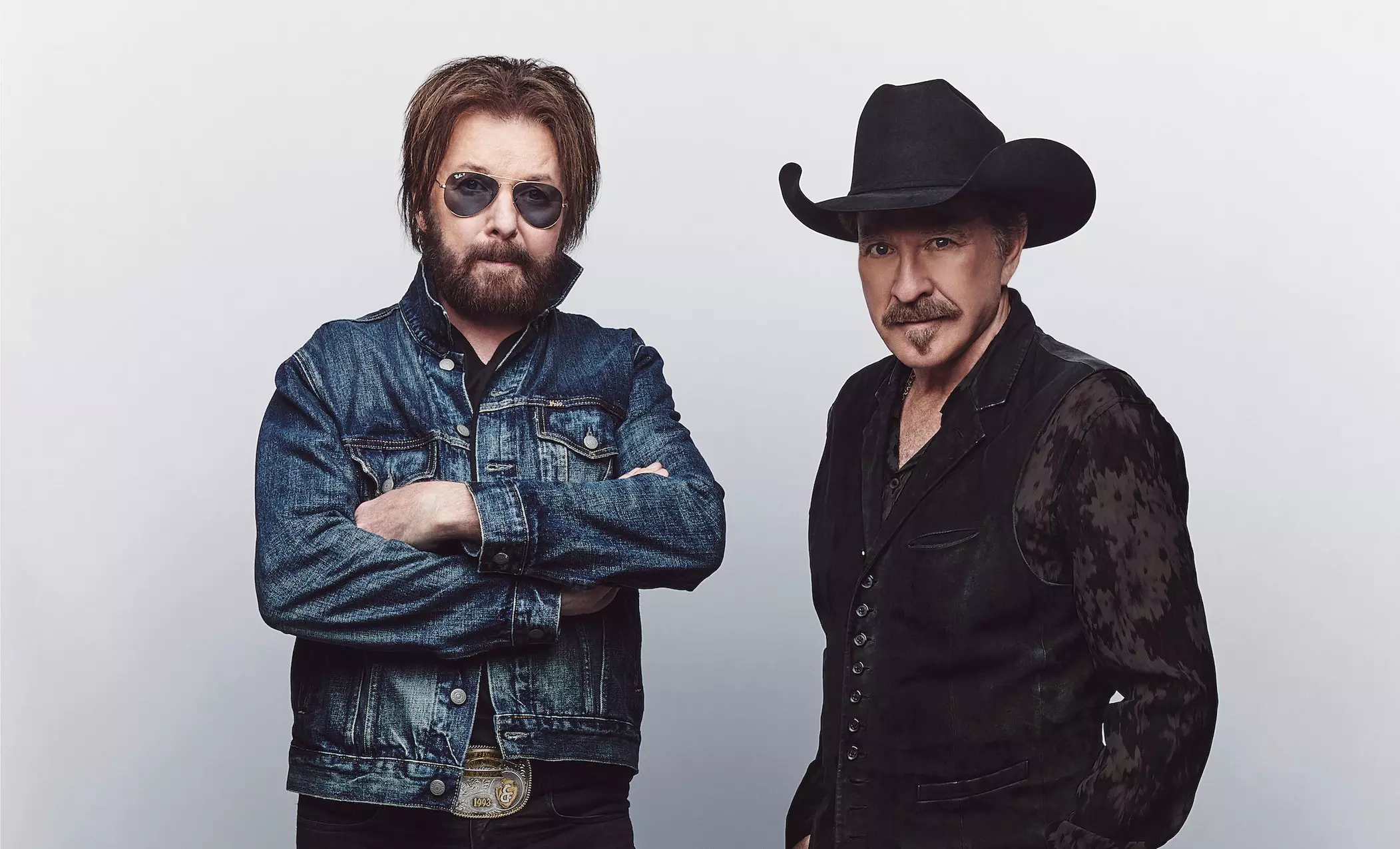
Living Legends: Brooks & Dunn On How 'Reboot II' Is A Continuation Of "Winging It From Day One"
